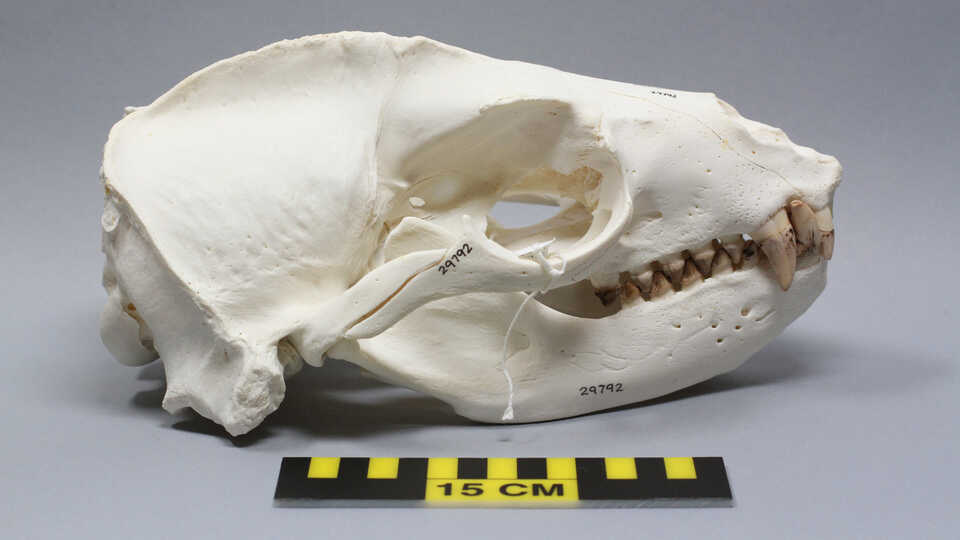
A California sea lion skull (Zalophus californianus) from the Academy's ornithology and mammalogy collection.
Welcome to the Advanced Marine Mammal Identification Course. On this page, you will find training modules on otariids, phocids, mustelids and cetaceans.
In each module, we will discuss the natural history, biology, and unique features of each species, which should help anyone identify marine mammals on the beach. Here are a few quick tips to help you navigate the slide presentations:
- Click on the links below and then the arrow/play button to begin each module.
- Look for the toolbar at the bottom of the page. You will find the play, pause/stop, forward, rewind, and volume adjustment buttons.
- To toggle closed captioning on or off, click the CC button.
- At the end of each module you will be given the opportunity to download PDFs of the referenced resources.
Click here for a page with downloadable resources, including cheat sheets and reporting information.
Introduction (3 minutes)
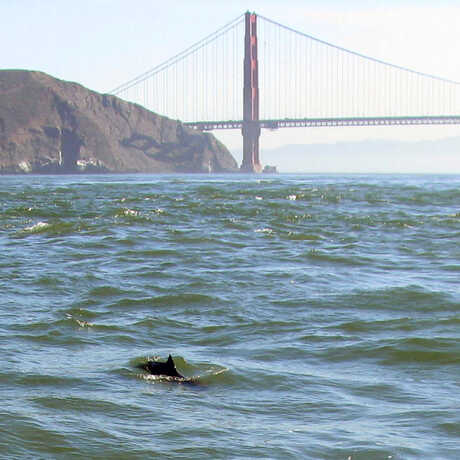
A general overview of the course. Meet the presenters, learn about legal issues surrounding marine mammals, and download all identification cheat sheets.
Photo courtesy of Bill Keener
Course modules

Data collection (23 minutes)
The most important aspect of identifying a marine mammal on the beach is recording where, when, and what you saw. Learn how to collect useful, accurate scientific data from a carcass and where to report any dead marine mammals that you find.
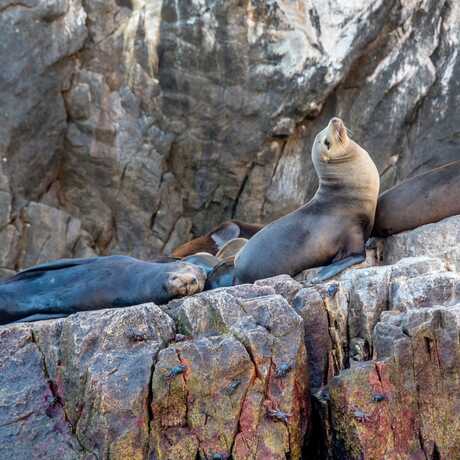
Otariids, or eared seals (39 minutes)
Meet the eared seals. Learn how to identify sea lions and fur seals when found on the beach.
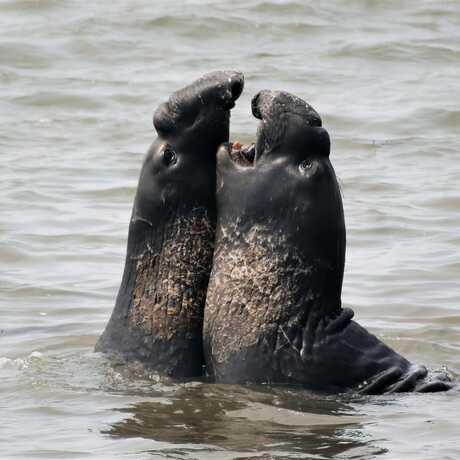
Phocids, or true seals (13 minutes)
Harbor seals and northern elephant seals, also known as the “true seals,” are commonly found on San Francisco Bay Area beaches. Learn how to distinguish them from the eared seals.
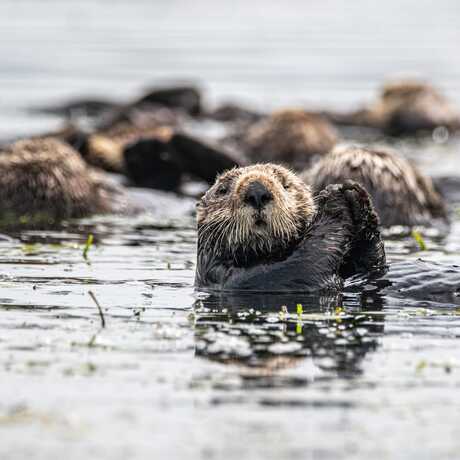
Mustelids, or otters (9 minutes)
In this section, we discuss the natural history, biology, and unique features of Mustelids, the weasel family. The two most common mustelid species found in the San Francisco Bay Area are the southern sea otter and the North American river otter.
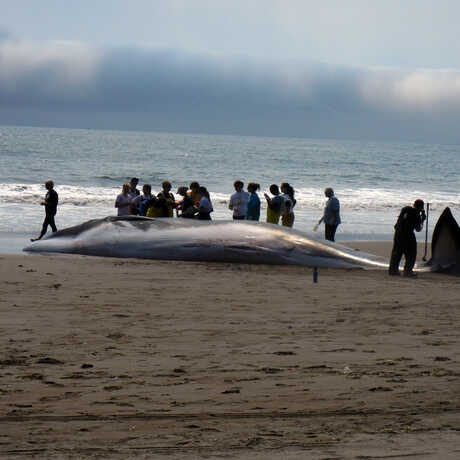
Mysticetes, or baleen whales (18 minutes)
There are approximately 90 species of whales, dolphins, and porpoises throughout the world. In this module, we focus on the baleen whales, which forage using a filtering system consisting of baleen plates inside their mouths to catch prey.
Photo courtesy of Diana Humple
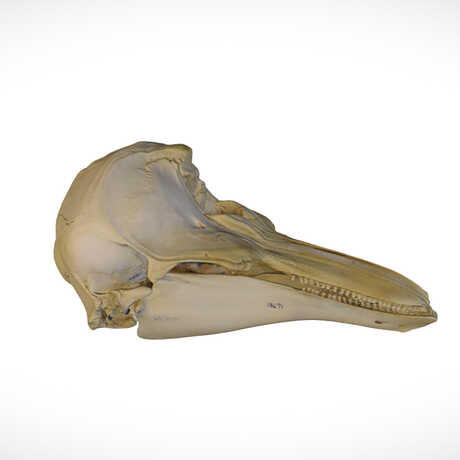
Odontocetes, or toothed whales (31 minutes)
In this unit, we focus on the odontocetes, or the toothed whales. This group includes dolphins, porpoises, and all other whales possessing teeth, such as the beaked whales and sperm whales.
The Academy is a member of the Marine Mammal Stranding Network, a federal research program designed to study the causes of marine mammal strandings.
O&M collections include 135,000 bird and mammal specimens from more than 120 countries. Meet the researchers, explore projects and expeditions, and more.